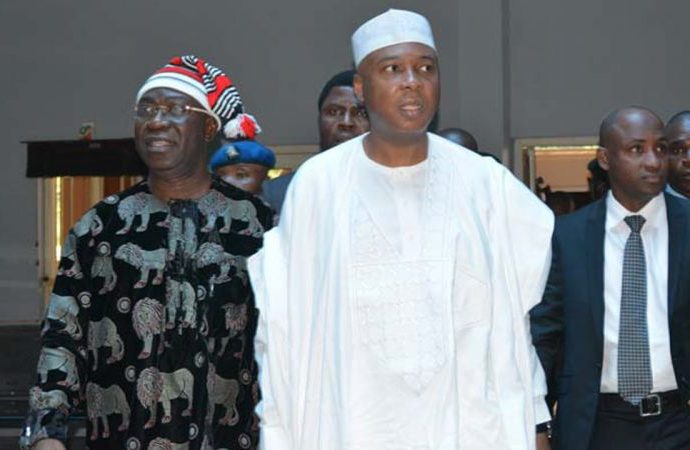By Chukwudi Nweje
The debate on the Fourth Alteration Bill of the 1999 Constitution of is still ongoing, but it is clear that the outcome will not be what Nigerians may have expected. Before the National Assembly commenced the exercise, excitement was high that the it would provide opportunity to address the lingering agitation for restructuring the country.
In a particular instance, lawyer and public affairs analyst, Adebayo Adeolu, had noted that most of the issues in contention required constitutional amendment to be altered, stressing that the constitution amendment process had come handy to that affect.
Constitution amendments have almost become a legislative ritual in Nigeria but unfortunately, the several amendments have failed to address the core problems facing the country.
The Nigerian constitution uses the term “alteration” rather than “amendment,” thus, there had been three alteration acts since the document became operational in 1999.
The first Alteration Bill was passed by the National Assembly on June 3, 2010. Among other things, it sought to provide for the financial independence of the National Assembly and the Independent National Electoral Commission (INEC).
The Second Alteration Bill passed by the National Assembly on November 4, 2010 provided for new time-line for the conduct of national elections by the INEC.
The Third Alteration Bill sought to establish the National Industrial Court and was passed by the National Assembly on December 15, 2010. The Bill received presidential assent on January 10, 2011, after initial controversy over whether there is need for a presidential assent before amendments can become law.
The current constitutional amendment process began in November 2012. It was submitted to former President Goodluck Jonathan for assent in 2015 but he did not assent to it before leaving office on May 29, 2015.
The 8th National Assembly had initially passed it on to President Muhammadu Buhari in the hopes that it would be assented to for it to take effect.
Back to the track
The ongoing discussions on the amendment came at a time the agitations for a restructuring of Nigeria is at its height. Lagos State Governor, Akinwumi Ambode, who spoke at a recent retreat for the lawmakers in the stste, cited some key areas that need restructuring to include devolution of powers, state policing, and review of the revenue allocation formula among others. He said that they were necessary in the country’s quest to fully realise its potentialities in all sectors of the economy.
Deputy Senate President, Ike Ekweremadu, who is chairman of the joint committee, said that the 8th National Assembly had also raised the hopes of Nigerians when he said that they would ensure the new constitution was fast-tracked through isolation of the amended bills to allow speedy passage and assent by the President. He also expressed optimism that the exercise would be concluded before the end of the year.
To restructure or not?
The agitation to restructure Nigeria has polarised commentators. Arguments have been advanced by former military President, Gen. Ibrahim Babangida (rtd), and the former Vice President Atiku Abubakar among others that the current structure of Nigeria was flawed and needed restructuring.
In sharp contrast, former President Olusegun Obasanjo, maintained that the structure of Nigeria was alright while the attitude of Nigerians was flawed.
Babangida during his Eid-el-Fitri message to Muslims last June said that “the talk to have the country restructured means that Nigerians are agreed on our unity in diversity; but that we should strengthen our structures to make the union more functional based on our comparative advantages.
He also called for state police and argued that “the initial fear that state governors will misuse the officers and men of the state police has become increasingly eliminated with renewed vigour in citizens’ participation in, and confidence to interrogate power.
“We cannot be detained by those fears and allow civilisation to leave us behind. We must as a people with one destiny and common agenda take decisions for the sake of posterity in our shared commitment to launch our country on the path of development and growth…”
Atiku who spoke at the 3rd edition of the Policy Monitoring Dialogue Series on National Unity, Integration, and Devolution of Power /Restructuring in Abuja, also argued that “restructuring will ensure greater accountability”, adding, “People are more likely to hold their state and local governments to account once those governments are no longer able to convincingly blame the central government for their shortcomings.
“Restructuring will promote healthy competition among our federating units, which will encourage them to diversify their revenue sources.
However Obasanjo argued that there was nothing wrong with Nigeria to warrant the clamour for restructuring or dismemberment. He said that if Nigerians restructured their mindsets the country would be alright.
“There is nothing wrong with Nigeria, but a lot is wrong with Nigerians. We need to correct what is wrong with Nigerians and you become an accomplice if you fail to say what is right,” he said during a visit to the palace of Olu of Warri, His Majesty, Ogiame Ikenwoli.
Adeolu who urged the National Assembly to leverage on the constitution amendment to restructure Nigeria agreed with Obasanjo that some problems with Nigeria are more attitudinal than structural. He said that the lawmakers have not addressed the core problems of the country in all constitution amendments they embarked on.
“The fundamental problem of Nigeria since the British created this monstrous country is that the attitude of people must change especially up north. The Igbo are calling for Biafra because of the killings of their people up North of Nigeria and nobody is arrested or punished. How long will that continue after 50 years of independence?
“The second problem is corruption. All the amendments at the National Assembly over the years had been focused on the safety net of corrupt officials in Nigeria. They amended to weaken the powers of the President and to dictate their allowances and recall procedure. The solution however is equality and fair play, good economic management of the resources of Nigeria,” he said.
Hope, dashed?
The argument that the problem of Nigeria is more attitudinal seemed to be confirmed on Wednesday when the Senate concluded their debate. The lawmakers voted on 33 key areas and adopted issues like enlarging the members of the Council of States to make former President of the Senate and former Speakers of the House of Representatives members of the Council; Financial Autonomy of State Legislature; Special accounts for local government; and Immunity for legislators for acts in the course of duty among others. But sadly, devolution of power to the states, the very soul of the agitation for restructuring, was rejected. Many senators voted against the proposal, with fewer voting in support.
Adeolu said that he was not surprised by the action because the lawmakers are only after their selfish benefits.
“They have not focused on what will be good for Nigeria,” he said.
Before the debate on the constitution Ekweremadu, had said that the effective and comprehensive restructuring of Nigeria could only be done incrementally to ensure gradual acceptance of the thorny issues after adequate enlightenment of Nigerians.
Senior Advocate of Nigeria (SAN) Emeka Ngige, agrees, adding that the issue of devolution of powers is very complex and cannot be easily addressed through constitution amendment. He said that voting for devolution powers at a time when agitation for self-determination was at its peak was not wise.
“Devolution of power is a very complex issue that cannot be easily attained through constitution amendment. More so, now that agitation for self-determination is on, passing devolution of power will be like pouring petrol into the burning fire.
“The most important thing for us now is to have a leadership that is fair to all ethnic and religious groups in the country. It is when you have marginalization that cries of self-determination, restructuring, resource control and let us go come up. Nigeria needs a father figure that will douse all those tension,” he said.













